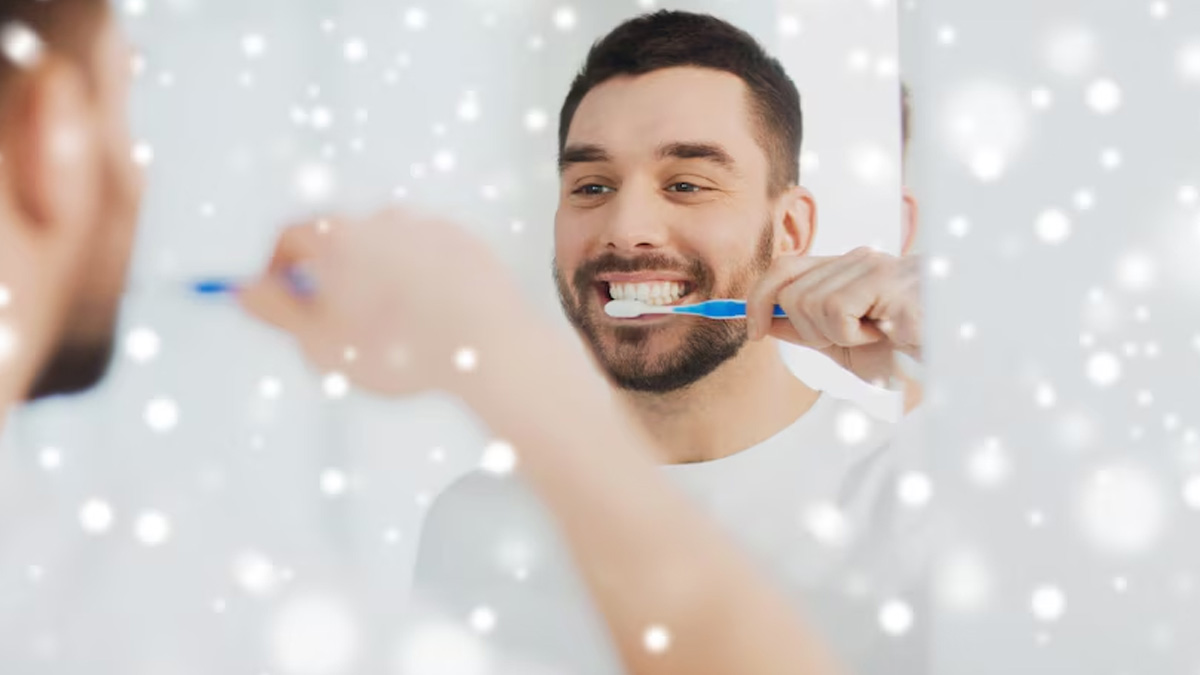
Your oral health is as important as your heart or lung health. Maintaining oral hygiene helps prevent oral diseases and decay, including dental caries, periodontal or gum disease, tooth loss, and oral cancer.
According to the World Health Organization (WHO), oral diseases are the most common noncommunicable diseases worldwide, affecting an estimated 350 crore people. The good news is that oral problems are preventable with proper hygiene and by practising good oral habits. In fact, simple bedtime habits can also contribute to oral health, says Dr Varinder Goyal, Member and Board of Directors, International Association of Paediatric Dentistry. In an interaction with the OnlyMyHealth team, the doctor shares and discusses a few essential nighttime habits that can help maintain oral health.
Also Read: Poor Oral Hygiene Alone Does Not Cause Gum Disease: Other Causes To Consider
Nighttime Brushing

According to the National Institute of Dental and Craniofacial Research, brushing is an effective way to remove dental plaque, a sticky, colourless film of bacteria.
The US Centers for Disease Control and Prevention (CDC) recommend brushing your teeth well twice a day with fluoride toothpaste.
In particular, brushing before bedtime is a scientifically proven practice that can significantly improve your oral health, according to Dr Goyal.
He explains, "Our saliva production slows down during sleep, making it easier for harmful germs to grow in our mouths. Nighttime brushing compensates for this decrease in saliva production by eliminating the bacteria and keeping our mouths clean and healthy through the night."
He further adds that brushing before bed reduces the risk of cavities by 50%, as it removes germs and sticky leftover food particles that provide an energy source for germs to produce harmful acids.
Avoid Sugary Foods And Drinks

Excessive sugar consumption, whether in the form of snacks or drinks, can contribute to the risk of oral health problems such as tooth decay and cavities, Dr Goyal highlights.
According to the WHO, high levels of dental caries occur in middle-income countries where sugar consumption is high. In fact, the health body shares that limiting free sugar intake, which includes fruit-based and milk-based sweetened drinks and 100% fruit juices, to less than 10% of total energy intake minimises the risk of dental caries throughout the lifecourse.
Also Read: Why You Should Not Brush for More Than Two Minutes?
Flossing Before Bed

Dr Goyal also recommends regular flossing before bed. He says that it helps remove plaque buildup and reduces the risk of gum disease.
A 2020 study published in the Journal of Dental Research examined the oral health of older adults above age 65 and looked at how flossing habits impacted their gum health, cavities, and tooth loss over the course of five years.
Researchers found that people who flossed regularly had healthier gums, fewer cavities, and lost fewer teeth compared to those who didn't floss. This suggests that flossing daily can help improve oral health and reduce the risk of various oral problems.
Conclusion
Following a bedtime routine that involves regular brushing, flossing, and avoiding unhealthy foods can prove beneficial for your oral health. Dr Goyal says that brushing your teeth before bed allows remineralisation to occur overnight, strengthening tooth enamel and preventing cavities. He concludes that by incorporating these simple habits into our bedtime routine, we can ensure that our oral health remains in good condition.
Also watch this video
How we keep this article up to date:
We work with experts and keep a close eye on the latest in health and wellness. Whenever there is a new research or helpful information, we update our articles with accurate and useful advice.
Current Version